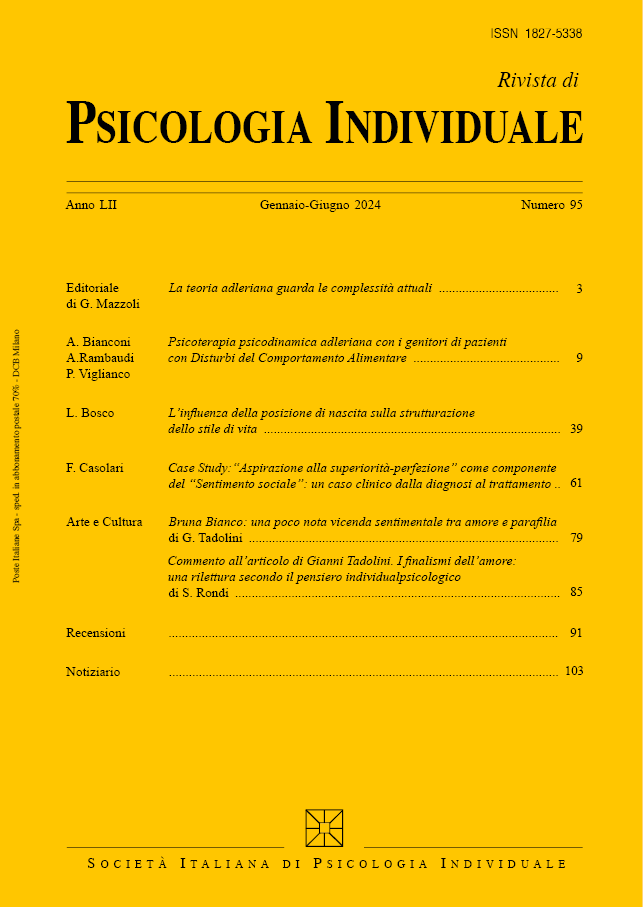NEUROSCIENCE AND DEEP DYNAMICS OF CHANGE IN THE THERAPEUTIC RE LATIONSHIP
Keywords:
change, neuroscience, unconscious, psychodynamicsAbstract
Recently, the brain science techniques, in addition to clinical meta-analyses, confirmed the effectiveness of psychotherapy, mostly psychodynamic. These investigations aim to identify the core of those factors that promote changes in order to activate it as early as possible.
Studies and researches in the field of neuroscience studied crucial problems like the therapeutic alliance, namely both factor and result of change, the brain changes psychotherapy-induced and mostly the unconscious as neuropsychological process. Neurobiological contributions on procedural memory, the function of dream, and defense mechanisms, the biopsychological processes of attachment, and the configurations of mirror neurons of empathy/compassion, intrapsychic/interpersonal processes as embodied simulation and intentional attunement acknowledged the main implicit characteristic, affective rather than cognitive, unconscious rather than conscious, of such a relational dynamic between patient and therapist that has some effects that promote change also in the here and now of the setting. The brain science provides a growing body of evidence on the dynamics that promote the change suggesting a deep contact between patient and therapist as core element of change. The emotions existing between patient and therapist are implicit and non-verbal, rather than explicit and verbal, expressions: right rather than left brain, with sequences of reciprocal contaminations and transformations. The neurobiological essential components of change entail a re-organization - through new behavioral modalities in the setting - of old pathological memories in order to obtain a new memory which is the effect of the therapist’s optimal empathic emotive involvement in the patient-therapist relationship. Attitude and counterattitude are the result of the inner re-elaboration of the therapist’s transference and countertransference, of the patients’ transference, of the reciprocal and continuous exchange of affect, trust, refusal, emotions, expectations…
The future results of the lines of research on the neurobiological dynamics of psychotherapy could lead to the identification of markers of diagnosis and therapy with the aim to clarify what individuals can benefit from each type of psychotherapy and from which focus within the context of the therapeutic relationship






